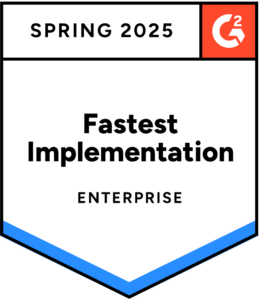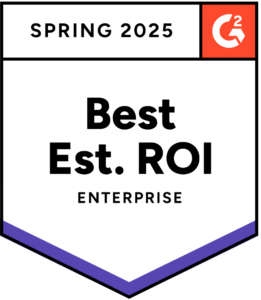Five Key Accounting Metrics To Analyze Before Scaling Your Organization
Blog post
Share
When you get right to it, dollars and cents are the lifeblood of every finance and accounting department. However, they’re not the only numbers that have critical importance to your business.
Key performance indicators (KPIs) give you the data you need to understand how well your team handles month-end financial close and more importantly, if they’re ready to handle an increase of work if you’re planning to scale.
The five key metrics to consider are:
- Exposure: What are your everyday risks?
- Cost: How much does it cost to close each month?
- Time: How long does it take to close?
- Quality: Are reconciliations done correctly?
- Accuracy: How often are reconciliations performed correctly the first time?
The hierarchy of importance for these KPIs varies based on the person reviewing them. What’s important to a controller is different from the accountants doing the work.
Controllers are looking at things from a macro level, focusing on accounting process challenges that bog down the entire month-end close process, so they emphasize KPIs like costs and exposure.
Team leads are more concerned with the day-to-day accounting tasks, focusing on things that have a direct impact on the performance of their accounting and finance team like quality and time.
To understand how these metrics affect your ability to scale, let’s take a closer look at each and how they impact your organization.
1. Limiting Your Exposure (Risks)
Every account has a level of risk associated with it. From data entry errors to software limitations, mistakes and inadequacies can saddle your organization with material weaknesses that could hurt you down the road.
If you’re scaling by acquisition, you could be taking on a new ERP or walking into another company’s last six months of a close. Then there’s the SOX compliance audit you have to contend with to protect investors.
Of course, it’s not just about financial risk. You also want to avoid reputational risk so you keep your company’s shortcomings out of the news cycle.
Whether it is risk associated with an ERP or your organization’s reputation, modernizing your reconciliation process from the start can set you up to limit your risk exposure now and in the future. Learn how to equip your organization with modernization in our eBook here.
2. Understanding Your Costs
Understanding the costs associated with the time it takes to process a reconciliation gives you a good idea of what you need to scale up. If it takes your team the full month to process every transaction you receive, you won’t be able to keep up with a heavier workload that comes as a result of an acquisition or new product line.
Doubling your headcount isn’t an ideal solution; getting the resources needed to double payroll is difficult since your accounting team doesn’t generate any revenue for your company. After all, your finance department is a cost center, not a revenue center.
By understanding the true cost of operations, you can prepare your finance team for the inevitable increase in workload that comes with scaling.
3. Tracking Your Time
As you scale, it is critical to discover more efficient ways to complete your month-end close. It’s all about working smarter, not harder. So you have to increase your capability exponentially without doing the same to your costs. The easiest way to do this is to review how you spend your time.
By measuring the time it takes to complete a single reconciliation or month-end close for a single account, you can determine the impact a new acquisition or product line will have on your finance team’s workload. Then you can explore new solutions that allow you to handle the increased workload without going over budget.
4. Confirming The Quality Of Your Reconciliation and Month-End Close Process
When measuring the quality of reconciliations and month-end close, your primary goal is to prepare for future audits by asking specific questions, such as:
- Did the reconciliation complete on time?
- Are all documents and data included?
- Does your audit or reconciliation require evaluation?
- Were any necessary adjustments completed?
- Who performed the reconciliation?
When you’re scaling through acquisition, audits are part of the process. Auditors can ask for reconciliation samples from different accounts throughout your business and each one needs to stand on its own. You can’t make excuses if they’re incomplete or missing key documentation.
To learn more about simplifying your month-end close, sign up for our free webinar, 5 Best Practices to Simplify Your Financial Close Practices.
5. Measuring Your Accuracy
Mistakes happen, but tracking their frequency helps you measure the accuracy of your reconciliation processes. If you have reconciliations rejected or kicked back for review often enough, this causes a lag in the system, delaying your month-end close.
Accuracy is only achieved through meticulous checks and balances. Subtotals have to equal your totals and every piece of data required has to be accounted for. This supports the calculations and processes so you’re on solid footing during your month-end close.
For a deeper dive into these KPIs and more, discover the Top Financial Close KPIs You Should be Measuring to Drive Strategic Decisions.
How Accounting Automation Helps You Prepare to Scale Your Organization
Scaling your organization is a serious venture and you need to know that your finance team can handle the heavier workload.
Most companies plan for their close cycle to last 7-10 days. The reality is that most are on a 20-day cycle.
That timeline doesn’t give your finance team a lot of free time to work on other important tasks like determining better ways to save your company money or secure a better return on investment through better financial practices.
The Adra® Suite of financial tools provides you with an automation solution that provides you with customized reporting and real-time visibility, enabling you to track and reconcile transactions faster and more accurately. It also limits your exposure and protects you through automated separation-of-duty (SOD) checks so one person can’t act as both approver and reviewer.
In addition, Adra also:
- Reduces costs by adopting automation versus hiring more staff
- Reduces your time to close by speeding up your reconciliation process
- Improves the quality of your close by enforcing documentation requirements
- Removes the risk of human error by downloading data directly from the source
- Provides an opportunity for auto-certification on accounts that don’t require review.
More importantly, automation gives your finance team time-critical information in an easy-to-use dashboard. When you empower your team with this type of visibility, you give them more opportunity to grow into strategic leaders within your organization instead of spending all their time reviewing old reconciliations that should have been closed months ago.
If you’re ready to modernize your reconciliation process with automation that prepares your business to scale, give Adra a call. We can schedule a free demo so you can see our accounting software and how it can help you.









